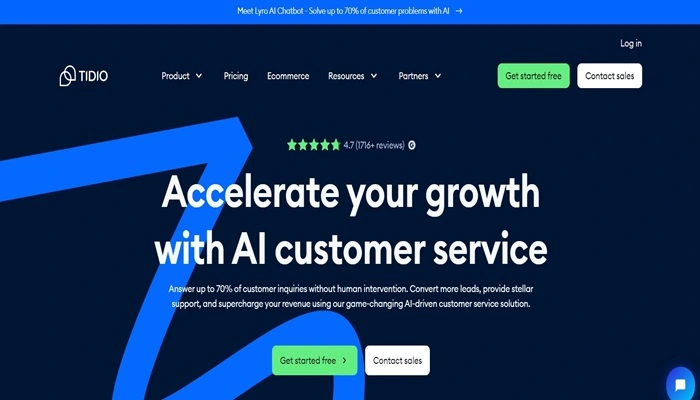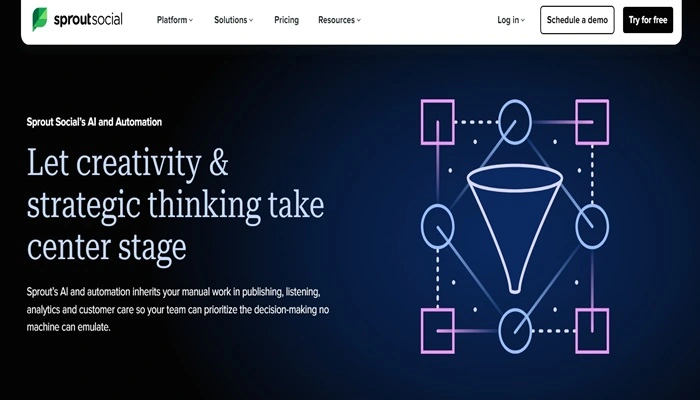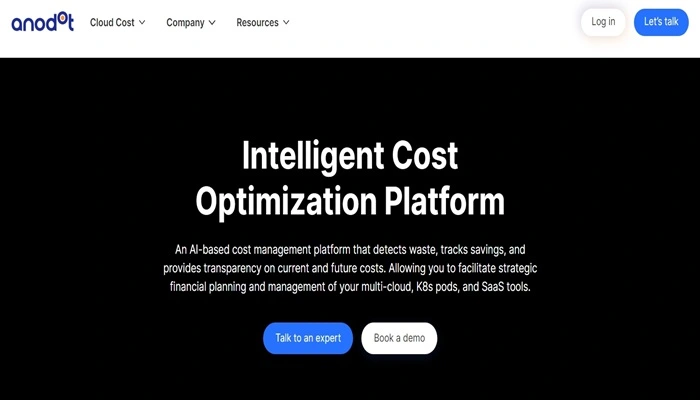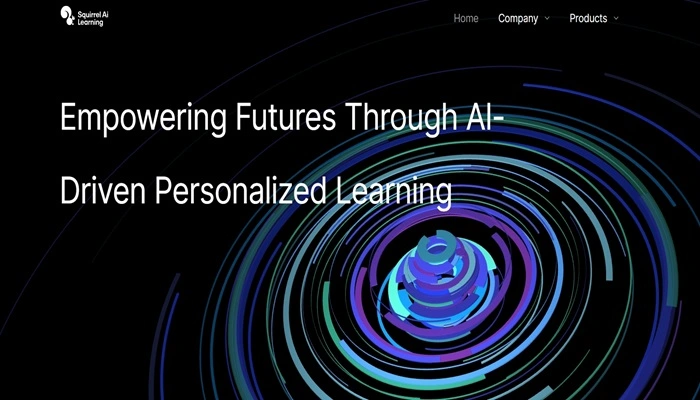- Home
- -Blog
Top AI SaaS Ideas Shaping the Future

- Updated on 29 July 2024
- Shabir Ahmad
Top AI SaaS Ideas Shaping the Future.
Audio Summary
Listen to the audio version of this blog post:
The blend of artificial intelligence (AI) with Software as a Service (SaaS) is not just a trend but a substantial shift in how businesses operate, innovate, and deliver value to customers. AI technologies, from machine learning algorithms to natural language processing, are increasingly embedded in SaaS products to offer smarter, more efficient, and personalized services. This integration is transforming industries by automating tasks, providing deeper insights, and enhancing user experiences.
The significance of AI in the SaaS sector is underscored by compelling statistics: A recent report highlighted that the global AI software market is expected to grow significantly, with forecasts suggesting it will reach upwards of $126 billion by 2025 . This growth is partly fueled by the SaaS model's flexibility and scalability, making advanced AI tools accessible to companies of all sizes. Furthermore, 75% of enterprises using SaaS products plan to increase their AI functionalities within
What Are AI and SaaS?
At its core, Artificial Intelligence (AI) refers to computer systems designed to mimic human intelligence—learning, reasoning, and problem-solving to perform tasks. These systems can improve their performance based on the data they process, making them incredibly versatile and powerful.
Software as a Service (SaaS), on the other hand, is a software distribution model where applications are hosted by a service provider and made available to customers over the Internet. This model allows for easy access, flexibility, and scalability, as users can access software applications without the need for complex installations or maintenance.
How AI is Revolutionizing the SaaS Industry
AI's introduction into how SaaS products are transforming the industry in several key ways:
- Enhanced Efficiency and Automation: AI enables SaaS platforms to automate repetitive and time-consuming tasks. For example, AI can automate email responses in customer service platforms or schedule social media posts in marketing tools, saving businesses countless hours.
- Automated the Workflow: AI-powered SaaS subscription billing software, such as Maxio or Younium, can automate revenue recognition, subscription billing management and help in reducing revenue leakage by proving real time insights.
- Personalized User Experiences: AI excels at analyzing large volumes of data to derive insights about individual preferences and behaviors. This ability allows SaaS providers to offer personalized experiences, such as tailored content recommendations in educational platforms or customized marketing messages, significantly improving user engagement and satisfaction.
- Advanced Data Analytics: AI-powered analytics tools like UniBee provide businesses with deeper insights into their operations, customer behaviors, and market trends. These insights can inform strategic decisions, highlight growth opportunities, and identify efficiency improvements.
- Improved Security Measures: With cyber threats becoming more sophisticated, AI is a critical ally in enhancing the security of SaaS applications. It can predict and identify potential security breaches before they occur, offering real-time protection against a wide array of cyber threats.
- Cost Reduction: By automating tasks and offering more efficient solutions, AI enables businesses to reduce operational costs. For instance, AI-driven chatbots can handle customer inquiries without human intervention, lowering the need for large customer service teams.
AI SaaS Ideas That Are Changing the Game
The integration of Artificial Intelligence (AI) into Software as a Service (SaaS) products is a game-changer for various industries, offering innovative solutions and transforming traditional business models. Here are some AI SaaS ideas that are making significant impacts:
-
AI-Driven Customer Support Tools
- Chatbots for Instant Customer Service: AI-powered chatbots are revolutionizing customer service by providing instant, 24/7 responses to customer inquiries. These tools can handle a vast array of questions, direct users to relevant resources, or escalate complex issues to human representatives, ensuring efficient customer support.
- AI Knowledge Base Software for Enhanced Self- Service: AI knowledge base software help user to find relevant solutions for their queries in intelligent search bar and provide instant crucial informs to resolve their issues. It helps customers to resolve their queries independently.
-
AI for Personalized Customer Support
Experiences:
Beyond handling inquiries, AI can analyze a customer's
history and preferences to offer personalized support
solutions. This can include recommending products,
troubleshooting past issues, or providing customized
advice, greatly enhancing the customer service
experience.
One exemplary AI SaaS platform is Tidio , which combines live chat and AI-powered chatbots to enhance customer service for businesses of all sizes.Another notable solution is Overchat AI, offering advanced AI-driven customer engagement tools designed to streamline support operations and boost customer satisfaction. And last but not least is SendPulse, a chatbot platform that works with all the major messengers and social media apps like WhatsApp, Facebook, Instagram,Telegram, etc.

-
Automated Marketing Platforms
- AI Tools for Marketing Campaigns: Automated marketing platforms utilize AI to streamline the creation, management, and optimization of marketing campaigns. These tools can generate human-like text , suggest optimal posting times, and target specific audience segments, making marketing efforts more effective and less time-consuming.
- Analysis of Customer Data for Strategy Improvement: AI excels in analyzing complex datasets, allowing businesses to understand customer behavior and preferences deeply. This insight can be used to refine marketing strategies, personalize marketing messages, and ultimately, drive better results.
-
Smart Business Analytics and Insights
- Real-Time Business Analytics Platforms: AI-driven analytics platforms provide businesses with real-time insights into their operations, finances, customer engagement, and more. This immediate access to data allows for quicker, more informed decision-making.
- Predictive Analysis for Decision-Making: Leveraging historical data, AI can predict future trends, customer behaviors, and potential market shifts. Businesses can use these predictions to make proactive decisions, mitigate risks, and capitalize on upcoming opportunities.
-
Enhanced Security Solutions
- AI Systems for SaaS Security: With cyber threats constantly evolving, AI systems are crucial for enhancing the security of SaaS applications. They can continuously learn and adapt to new threats, ensuring that defenses are always up to date.The best AI tools are those that evolve based on user needs and feedback.
- Real-Time Threat Detection and Response: AI can monitor systems in real-time, instantly identifying and responding to potential security threats. This rapid detection and response capability is vital for protecting data and maintaining trust.
-
Personalized Learning Platforms
- Customized Learning Experiences: AI can create personalized learning experiences by adapting content to match the learner's style, pace, and understanding level. This approach ensures that learners remain engaged and can achieve better outcomes.
- Adaptive Learning Platforms: These platforms assess a learner's performance in real-time and adjust the difficulty level, type of content, and learning path accordingly. This adaptability makes learning more effective and tailored to each individual's needs.
One notable AI SaaS platform is Sprout Social , which offers advanced social media management solutions enhanced by artificial intelligence.

Anodot is a powerful AI SaaS platform specializing in business monitoring and analytics to detect anomalies and forecast potential issues in real-time.

Vectra AI is a leading AI SaaS platform specializing in cybersecurity, offering advanced threat detection and response solutions.

Squirrel AI is a pioneering AI SaaS platform specializing in adaptive learning and educational technology.

How to Start with Your AI SaaS Idea
Turning an AI SaaS idea into a tangible product involves several critical steps that pave the way from concept to launch. Here's how you can start:
- Market Research and Idea Validation: Before anything else, understand the market's needs and how your AI SaaS product fits in. Conduct thorough research to validate your idea, identify potential customers, and evaluate competitors.
- Define Your Product and Its Value: Clearly outline what your product will do and the specific problems it will solve. This step is crucial for defining the unique value your AI SaaS offering will bring to the market.
- Build a Skilled Team: Developing an AI SaaS product requires a team with expertise in AI, software development, product design, and market analysis - which is why many companies choose to hire Generative AI developers to build scalable, innovation-driven solutions. Assemble a team that shares your vision and has the necessary skills to bring the product to life.
- Develop a Prototype: Create a minimum viable product (MVP) or prototype to begin testing your idea. This version should include the core functionalities that solve the primary problem your product addresses.
- User Testing and Feedback: Introduce your MVP to a small group of potential users. Gather feedback on its usability, effectiveness, and any features that users would like to see. This step is crucial for iterative development.
- Iterate Based on Feedback: Use the feedback to refine and improve your product. This process of continuous improvement is vital for developing a product that truly meets the needs of your target audience.
- Launch and Market Your Product: Once your product is polished and ready, plan a launch strategy. This includes marketing your product to reach your target audience effectively and building your customer base.
- Continuous Improvement: Post-launch, continue to gather user feedback and use it to enhance your product. The best AI SaaS products are those that evolve based on user needs and feedback.
The importance of user feedback cannot be overstated. It ensures that your product remains relevant, useful, and competitive in a rapidly changing market. Engaging with your users and prioritizing their feedback is crucial for the long-term success of your AI SaaS product.
Challenges and Solutions
Launching an AI SaaS startup comes with its set of challenges, but with the right approach, these can be overcome.
Challenge 1: Securing Funding
- Solution: Prepare a solid business plan that demonstrates the value and potential of your AI SaaS idea. Pitch your idea to investors, and venture capitalists, and consider crowdfunding platforms. You can also explore grants and government funding programs tailored for AI innovations. Utilize platforms like an AI business plan generator to refine your pitch, showcasing clear market potential and ROI projections to captivate potential backers.
Challenge 2: Developing the AI Technology
- Solution: Collaborate with AI experts and consider open-source AI tools to build your product. If you need a specialized approach, investing in custom AI development can help create tailored solutions that align with your business objectives. Stay informed about AI research and methodologies to enhance your product's capabilities.
Challenge 3: Ensuring Data Privacy and Security
- Solution: Implement robust security measures from the start. Stay updated with the latest in cybersecurity and comply with data protection regulations to build trust with your users.
Challenge 4: Acquiring and Retaining Customers
- Solution: Focus on building a product that addresses a real need. Utilize digital marketing strategies to reach your target audience and focus on providing exceptional customer support to retain users.
Challenge 5: Keeping Up with Rapid Technological Changes
- Solution: Foster a culture of continuous learning within your team. Encourage innovation and stay flexible in your product development to adapt to new technologies and market demands.
Challenge 6: User Feedback Integration
- Solution: Establish efficient channels for collecting and analyzing user feedback. Prioritize changes that align with your product's core value proposition and overall vision.
Overcoming these challenges requires a combination of strategic planning, constant learning, and a user-centered approach to product development. By focusing on delivering value and staying adaptable, AI SaaS startups can navigate these obstacles and achieve success.
How Can RedStagLabs Help You?
At RedStagLabs, we specialize in developing AI-driven SaaS solutions that match your business's unique needs. Our team of skilled experts will help you every step of the way, from initial planning to final implementation, ensuring a smooth process and ongoing support.
Whether you're a startup or a large enterprise, here's how we can help:
- Implementation: We work closely with you to understand your specific requirements and develop an AI SaaS solution tailored to your needs. Our goal is to ensure that the solution fits perfectly with your business processes and objectives.
- Integration: We offer seamless integration services to connect your AI SaaS solution with existing business applications and systems, such as CRM tools, ERP software, and marketing platforms. This ensures a cohesive and efficient workflow.
- Training and Support:To maximize the benefits of your new AI SaaS solution, we provide comprehensive training sessions and ongoing support. Our team will ensure that your staff are equipped with the knowledge and skills needed to use the solution effectively.
- Custom Development: If you need additional features or functionalities, our developers can create custom solutions to meet your requirements. We design and implement custom modules, plugins, or integrations to enhance your AI SaaS product.
Our mission is to help businesses across various industries leverage AI technology to their advantage. With RedStagLabs, you gain the tools and expertise needed to unlock your business's full potential.
Conclusion
The fusion of Artificial Intelligence (AI) with Software as a Service (SaaS) is forging a path toward smarter, more responsive, and highly personalized technological solutions. From AI-driven customer support tools that offer instant, personalized assistance, to automated marketing platforms that optimize campaign strategies with deep data analysis. We delved into smart business analytics for real-time insights, enhanced security solutions for robust protection, and personalized learning platforms that adapt to individual needs.
Each of these ideas demonstrates the vast potential and versatility of AI in enhancing SaaS products, making them not only more efficient and effective but also more aligned with specific user needs and preferences.
The burgeoning field of AI SaaS offers a fertile ground for innovation, inviting entrepreneurs, developers, and creators to explore its potential. Whether you're just starting or looking to expand your existing offerings, the AI SaaS domain presents exciting opportunities for growth and impact.
By diving into AI SaaS development, you're not just contributing to the next wave of technological innovation you're shaping the future of how businesses operate and how customers interact with technology. The possibilities are vast, and the time to explore them is now.
FAQ's
How AI is used in SaaS?
How do I create an AI SaaS product?
What is the best AI business to start?
What is the future of SaaS AI?
How many SaaS companies use AI?
How do I start my own AI startup?
Can I build my own AI model?
How do I create my own AI products?
What is the easiest AI to make?
How to make AI profitable?
Which AI field is best for future?
Is SaaS still growing?
Will AI take over by 2025 ?
What will AI replace in future?
Which sector uses AI the most?
What are the best AI tools?
AI in SaaS is used to enhance functionalities like customer service automation, data analytics, and personalized user experiences. It enables predictive analytics, improves security through anomaly detection, and automates routine tasks, thereby increasing efficiency and reducing costs.
To create an AI SaaS product, start by identifying a specific problem that AI can solve. Develop a scalable AI model using machine learning frameworks, integrate it into a cloud-based SaaS platform, and ensure robust data security. Continuous testing and optimization are crucial to refine the product.
The best AI business to start depends on current market needs and your expertise. Popular areas include AI-driven customer service platforms, predictive analytics for various industries, AI-powered cybersecurity solutions, and personalized learning platforms.
The future of SaaS AI looks promising, with expectations of increased integration of AI across various business functions. AI-driven automation, enhanced data analytics, and personalized user experiences will likely become standard features in SaaS applications.
A significant number of SaaS companies incorporate AI to enhance their offerings. According to recent surveys, nearly 80% of businesses are investing in AI and machine learning technologies to stay competitive.
Starting an AI startup involves identifying a market need, securing funding, developing a robust AI model, and assembling a skilled team. Focus on creating a minimum viable product (MVP), gather user feedback, and continuously iterate based on insights.
Yes, you can build your own AI model using various machine learning frameworks like TensorFlow, PyTorch, or Scikit-learn which are all Baseten alternatives for AI/ML model deployment. It involves collecting and preprocessing data, training the model, and evaluating its performance.
Creating AI products involves defining the problem, gathering and preparing data, selecting the right algorithms, training and testing the model, and integrating it into a user-friendly application. Continuous monitoring and improvement are essential for success.
The easiest AI to create typically involves simple machine learning models like linear regression or basic classification tasks. These can be developed using accessible tools and small datasets.
To make AI profitable, focus on solving real-world problems that have a clear demand. Implement subscription-based pricing models, offer scalable solutions, and continuously improve your product to maintain a competitive edge.
Fields like AI in healthcare, autonomous vehicles, and AI-driven cybersecurity are considered highly promising for the future due to their potential for significant impact and growth.
Yes, SaaS is still growing rapidly. The SaaS market continues to expand as more businesses adopt cloud-based solutions for their flexibility, scalability, and cost-effectiveness.
While AI will significantly influence many industries by 2025 , it is unlikely to "take over" entirely. AI will complement human efforts, automating routine tasks and enabling more strategic decision-making.
AI is expected to replace routine and repetitive tasks across various industries, such as data entry, basic customer service, and some analytical roles. However, human oversight and creative tasks will remain essential.
Sectors like finance, healthcare, retail, and manufacturing are among the most significant users of AI, leveraging it for predictive analytics, process automation, and enhanced customer experiences.
Some of the best AI tools include TensorFlow, PyTorch, Scikit-learn, IBM Watson, and Google Cloud AI. These tools offer a range of functionalities for developing, training, and deploying AI models.



